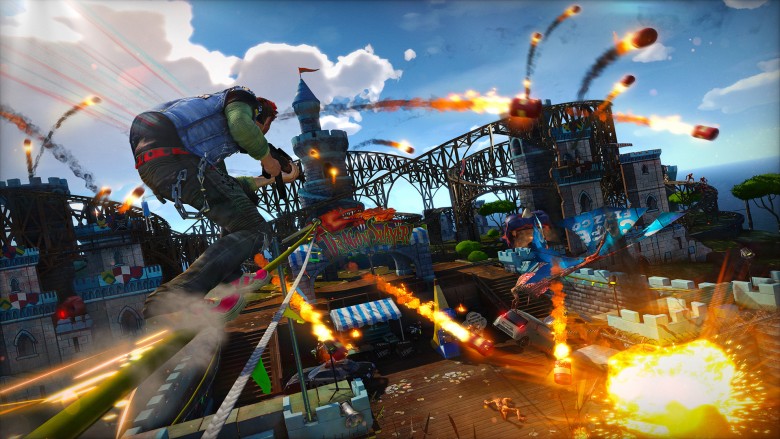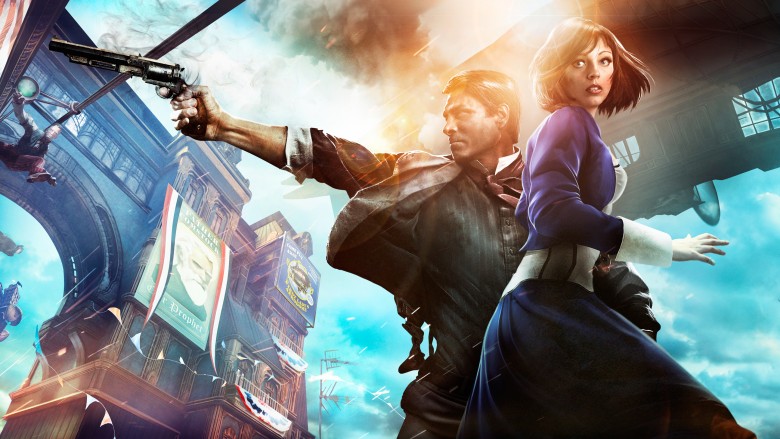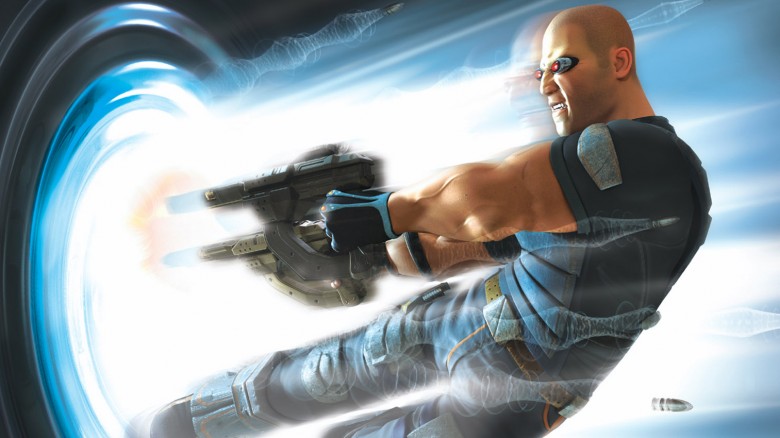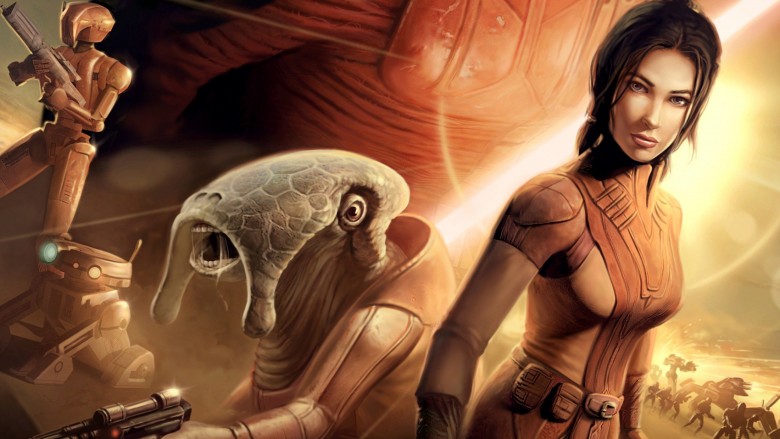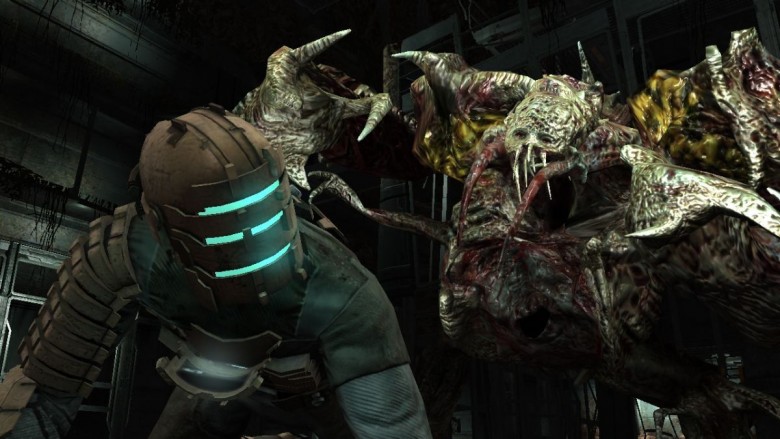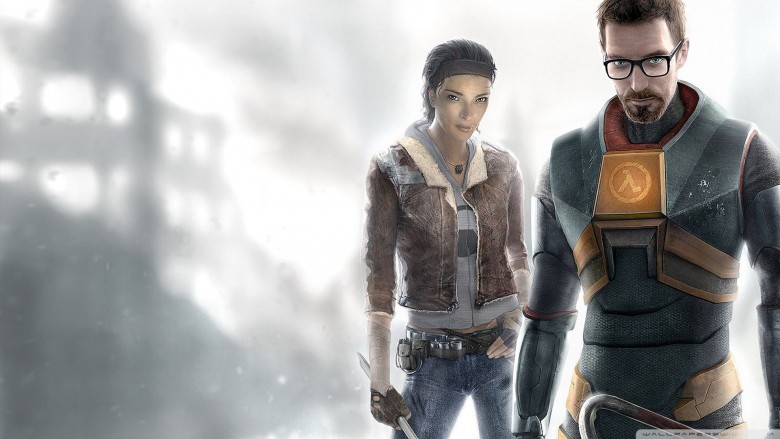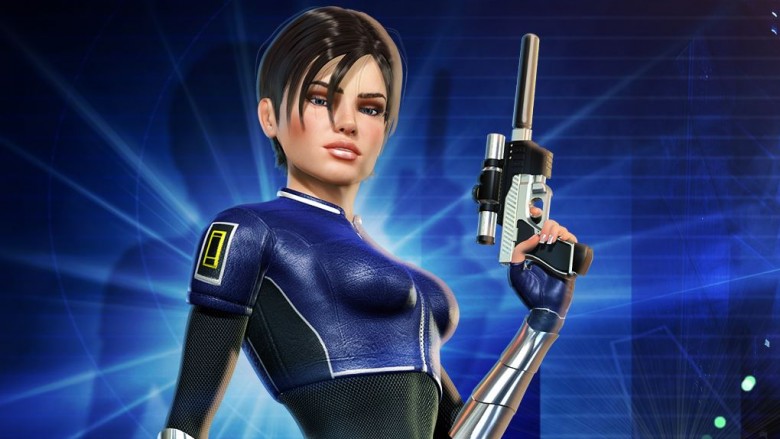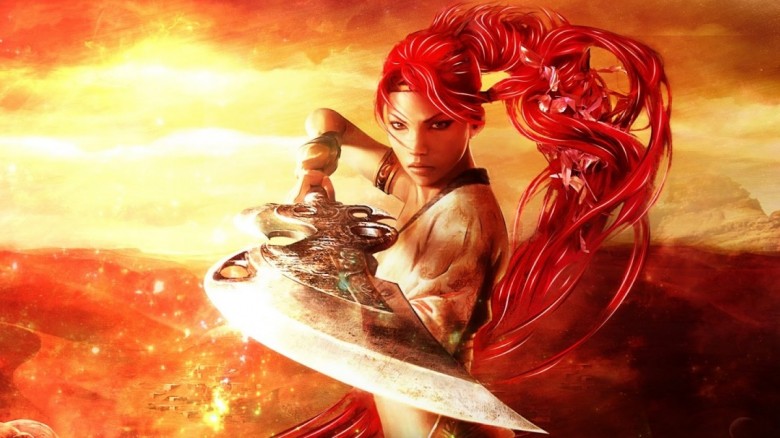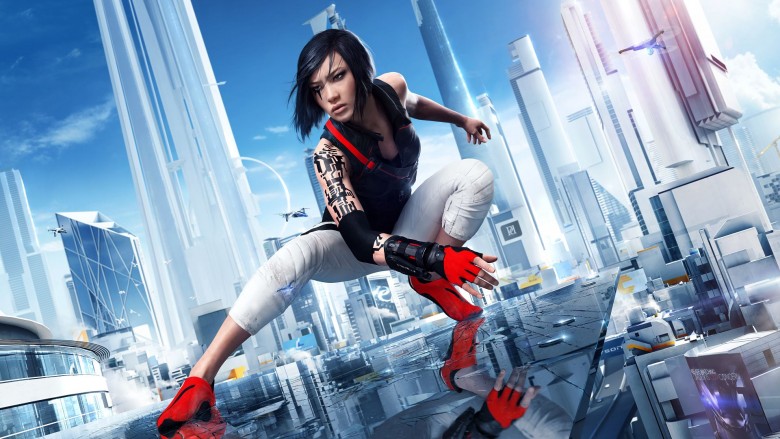Video Game Sequels You'll Never Get To Play
Film fans have a complicated relationship with franchises—sometimes it seems like the only thing we enjoy more than watching them is complaining that Hollywood makes too many of them. Gamers have no such qualms, however; once we finish playing a great game, we start eagerly anticipating a sequel. Unfortunately, there are some follow-ups to classic games that we may never get to play.
Star Wars Battlefront III
In addition to the movies, novels, comic books, and TV shows, countless Star Wars games have been released over the years, and some have even gone on to establish long-running franchises—such as Battlefront. Similar in nature to DICE's Battlefield, Star Wars Battlefront is a first and third-person shooter in which players engage in battles set within the Star Wars saga. The first game arrived in 2004 and the second in 2005, expanding upon the game's content. Instead of having Pandemic Studios continue the franchise with a third installment, LucasArts partnered with TimeSplitters developer Free Radical Games for the next iteration. After working on the game for two years, LucasArts suddenly canceled the project in 2008.
Free Radical co-founder Steve Ellis told GamesIndustry in 2008 that Battlefront III was canned because of a change in management at LucasArts, with people coming in who didn't want to dump a lot of money in marketing the game. "LucasArts' opinion is that when you launch a game you have to spend big on the marketing, and they're right. But at that time they were, for whatever reason, unable to commit to spending big. They effectively canned a game that was finished." Ellis' point about the game being finished isn't far off. Over the years, bits and pieces of Battlefront III have trickled out online, with an hour of pre-alpha footage leaking in April 2012 (which has since been removed by Lucasfilm). While we never got to play Battlefront III in all its glory, those with Xbox 360 development kits may be able to play a leaked build of the game.
Sunset Overdrive 2
Sunset Overdrive was one of the first major Xbox One games. It wasn't a blockbuster hit, but critics loved the game, particularly the artistic world Insomniac created. Two years after Overdrive's release, a Microsoft Studios spokesperson told GameSpot, "Insomniac Games is a great partner, and we love working with them. We are all proud of Sunset Overdrive and are always looking at ways to bring games to our fans. We have no further news at this time." When pressed, Insomniac said they'd love to make a Sunset Overdrive sequel if given a chance—but they're a developer, not a publisher, and Microsoft doesn't seem to be on board with producing another game right now.
While there many never be another Xbox-exclusive Sunset Overdrive, Insomniac still seems to be holding out hope for a sequel. "We are passionate about that franchise, and we own it, so you may see more Sunset in the future from us," studio president Ted Price said at the 2017 DICE Conference. "No promises, and no timeline to speak of, but it is something that represents our willingness to create unexpected experiences." Right now they're focused on developing Sony's new PS4-exclusive Spider-Man game, but once that's done, perhaps they'll take another look at Sunset City.
BioShock 4
BioShock is one of the most beloved and strongest-selling franchises in video game history, and its greatness is primarily owed to its creator, Ken Levine. In fact, researchers frequently use the series as an example when identifying video games as a legitimate form of artistic expression and storytelling. That type of recognition is tough to come by in the industry, and that's why Irrational Games and 2K Games have pushed out three installments thus far, with the last one, BioShock Infinite, arriving in 2013. Almost a year later, Levine dropped a bomb on fans while promoting the Infinite DLC "Burial at Sea: Episode Two"; instead of nudging forward with BioShock 4, he decided to shutter Irrational Games.
As a result of the studio winding down, Levine said 2K Games would retain control of the franchise's rights, and it would be entirely up to them to make BioShock 4 or not—which is something they actually plan on doing...eventually. "The BioShock universe remains a rich creative canvas for many untold stories, and we look forward to exploring the next BioShock experience," a spokesperson told GameInformer. They've taken their time getting there; in fact, at times, it's appeared as though they really don't have any intention of continuing the series. They stealthily removed the iOS version of BioShock from the Apple App Store in January 2017, with no plans of re-adding it.
From what we can tell, there won't be a BioShock 4, at least one fans would want to play, and Levine ultimately chose to cancel the film adaptation by citing the inability to compromise with Universal Pictures. However, thanks to Deadpool's incredible success, Gore Verbinski believes the market is ripe for an R-rated BioShock movie. In some way, the franchise might live on—hopefully sooner rather than later.
TimeSplitters 4
Free Radical Design just can't catch a break. First, they failed to get Star Wars Battlefront III going, and then they decided not to pursue a fourth TimeSplitters game when it dawned on them the franchise's fanbase simply wasn't big enough to make the endeavor worthwhile—and this is all despite announcing the game a decade ago, expressly saying, "Save the world or die laughing, Timesplitters 4 is coming to getcha!" A year after the announcement, the studio entered insolvency. Then in February 2009, Crytek acquired Free Radical Design and had them working on the multiplayer components for the publisher's Crysis series.
Free Radical rebranded as Crytek UK after being acquired, at which point the developers seemed unsure if Crytek would allow them to pursue TimeSplitters 4. At the time, managing director Karl Hilton said the future of the TimeSplitters franchise hinged upon the direction of the market. The publishers were at least interested in hearing about the title, mostly due to its brand awareness. Unfortunately, the overall performance of the last game in the franchise, TimeSplitters: Future Perfect, shot down any hope of seeing TimeSplitters 4 hit consoles.
At this point, it seems like we'll never get another TimeSplitters, especially since the studio that created the franchise no longer exists. In 2014, due to financial woes and low morale, Crytek ceased development on Crytek UK's Homefront sequel and shut down the studio altogether. The remaining staff who hadn't left or been laid off were transferred to Deep Silver's then-new Dambuster Studios, where they continued working on Homefront: The Revolution.
Knights of the Old Republic 3
Knights of the Old Republic III is typically at or near the top of the list whenever people talk about video game sequels they'd love to see. The first game is not only considered one of the best Star Wars titles of all time, but also one of the best RPGs ever. BioWare created a new era of the Star Wars franchise, one that hadn't been previously explored, and since then, the stories that have come out of the Old Republic have dominated the Expanded Universe (now known as Star Wars Legends).
LucasArts partnered with Obsidian Entertainment to make Knights of the Old Republic II: The Sith Lords, but due to budgetary constraints and a shortened timetable, the publisher forced the studio to release the game ahead of time, and the result was an unfinished title that left much to be desired. The thing is, before LucasArts canned Knights of the Old Republic III, Obisidian had already planned out the story for the rest of the trilogy, which would conclude with one of the galaxy's greatest characters, Revan, making a comeback.
As for why Knights of the Old Republic III never happened, Obsidian project director Josh Sawyer told IGN: "LucasArts was really focused on what they considered to be extreme, extreme blockbusters and even though the Knights of the Old Republic series was pretty successful, it just never seemed like something that was going to happen at that time." They still think about making the game, but with BioWare having already released The Old Republic, the idea of another Knights of the Old Republic game seems moot. The MMO takes place long after the events of the KotOR series, and much of the story has already been told.
Dead Space 4
Along with first-person shooters and sidescrollers, survival horror games are a cornerstone of the industry. The first Dead Space game's critical acclaim allowed the studio to make two sequels, despite the game not being an enormous success commercially. Sadly, franchise sales never skyrocketed like EA hoped. In fact, they plummeted, with Dead Space 3 shipping less than a million copies. That's likely what contributed to EA's decision not to move forward with Dead Space 4.
Although the publisher denied allegations they were laying off employees at Visceral Montreal, they didn't deny that Dead Space 4 had been canceled, nor that the cancellation was a result of poor Dead Space 3 sales. According to EA's former president Frank Gibeau, the franchise needs a lot more players for it to survive. "In general, we're thinking about how we make this a more broadly appealing franchise because ultimately you need to get to audience sizes of around five million to really continue to invest in an IP like Dead Space." While we may not get another Dead Space game, at least the studio is hard at work on its first Star Wars game, one that will apparently be in the same vein of Uncharted and the canceled Star Wars 1313.
Half-Life 3
Half-Life 3. Oh, Half-Life 3. It's a game fans have been waiting well over a decade to play, but in all likelihood, it'll never happen. Every once in awhile, a new rumor emerges, or a report leaks that suggests Valve is working on another Half-Life title, but the rumors are always shot down, and the reports refuted. Studio co-founder Gabe Newell offered a logical reason for why they aren't releasing Half-Life 3—they always seem to be working on something new. First, it was Half-Life, then it was multiplayer games, and then it was Steam. Now, they're busy with their Steam Machines and working with HTC on the HTC Vive.
The thing is, the lack of a third installment isn't a phenomenon exclusive to Half-Life; it's something that plagues the company as a whole. All of Valve's franchises have received sequels, but never a threequel: Half-Life, Team Fortress, Left 4 Dead, Dota, and Portal. The fact of the matter is, they don't believe in the number three. Newell even joked about it in a recent Reddit AMA, saying, "the number three must not be said." If you think he's really joking, he's not. Valve started releasing "episodes" after Half-Life 2, and they stopped at—you guessed it—Episode Two. Half-Life 3 has become the industry's white whale.
Perfect Dark 2
To stay relevant, developers have to move with the times, and that sometimes involves being acquired by a bigger studio or publisher. That's what happened with Rare in the early 2000s, and it looks like it might have been a mistake. The studio that created Goldeneye 007, Banjo-Kazooie, and Perfect Dark was relegated to convincing people to purchase the Kinect for Xbox One with their first-party titles Kinect Sports, Rare Replay, and now Sea of Thieves. But what gamers really want is Perfect Dark 2.
Instead of a sequel, the studio decided to take the story a step back and develop a prequel, Perfect Dark Zero. Now, almost two decades later, Rare still hasn't announced a sequel, and they probably won't. However, it's not like Microsoft has forgotten about the property. The company likes to surprise gamers with announcements of old IPs, but, unfortunately, at this time, Microsoft Studios creative director Ken Lobb says they aren't working on a new Perfect Dark game. Whether that'll change in the future is undetermined, but it seems unlikely. There's an entire generation that has never played (or even heard of) Perfect Dark.
Heavenly Sword 2
Heavenly Sword arriving almost ten years ago, and fans are still waiting for Ninja Theory to make a sequel. At this point, it seems like it'll never happen, but it's not like they never considered the idea. In fact, when the game's animation lead, Martin Binfield, left Sony Cambridge Studio in 2012, he updated his online résumé revealing that Sony had Heavenly Sword 2 in development at one point, but they shelved it in 2008 for unknown reasons. We already knew that the studio originally planned Heavenly Sword to be the first in a trilogy and that they already had the story written for the sequel. What we didn't know was that they had actually begun developing it.
Instead of pursuing another Heavenly Sword game, Ninja Theory started working on several new titles, such as Enslaved: Odyssey of the West, as well as their latest AAA title, Hellblade: Senua's Sacrifice. They've cautioned gamers not to consider Hellblade a spiritual sequel to Heavenly Sword, arguing that despite some similarities, they're fundamentally different. "No, it's not," Dominic Matthews told Eurogamer. "It's a brand new IP. Senua is a new character. It's not tied to Heavenly Sword at all." Well, people can hope, right?
Mirror's Edge 3
While most video game studios continue developing their biggest franchise, such as DICE with Battlefield, sometimes they have passion projects, and 2008's Mirror's Edge is a fine example. It was a radical departure for EA, so fans rejoiced when the studio commissioned another installment in 2013. But another installment seems like a stretch.
Like any other studio, EA wants to make cool games, but they also need to be profitable. If gamers went out and purchased millions of copies of Mirror's Edge and Mirror's Edge Catalyst, they'd be inclined to make another Mirror's Edge game—at least, that's what the company's EVP, Patrick Söderlund, wants people to believe. "Whether or not there's another Mirror's Edge is going to be up to the people out there," he told Polygon. "If we can convince them that there's a market for this, that people want to buy it, and if they tell us they want another one, then we'll make another one. If the answer is that there wasn't a big enough audience, it's too difficult and too much work goes into making a game to build a game that we know people probably don't want."
Mirror's Edge may have its devout fans, but the player base is nothing compared to the likes of Battlefront and—more importantly—Battlefield. The publisher may rather have DICE continue working on their beloved Battlefield franchise while building upon EA's exclusive Star Wars licensing agreement with Lucasfilm instead of pursuing Mirror's Edge 3.


